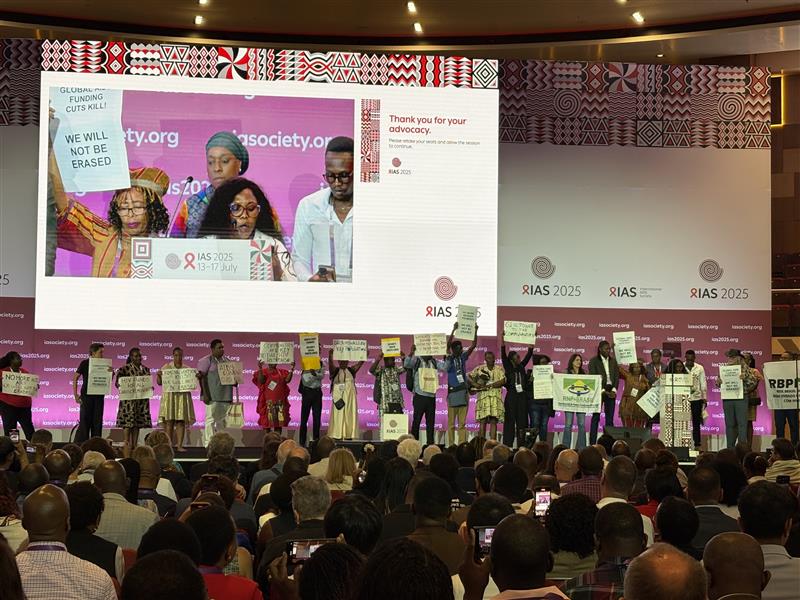
WHO recommends twice-yearly injectable lenacapavir for HIV prevention » Capital News
NAIROBI, Kenya, Jul 15 – The World Health Organization (WHO) on Monday released new guidelines recommending the use of injectable lenacapavir (LEN) twice a year as an additional pre-exposure prophylaxis (PrEP) option for HIV prevention, in a landmark policy action that could help reshape the global HIV response.
WHO issued the guidelines at the 13th International AIDS Society Conference (IAS 2025) on HIV Science, which kicked off in Kigali, Rwanda, on Monday.
LEN, the first twice-yearly injectable PrEP product, offers a highly effective, long-acting alternative to daily oral pills and other shorter-acting options.
With just two doses per year, LEN represents a transformative step in protecting people at risk of HIV—particularly those who face challenges with daily adherence, stigma, or limited access to health care.
“While an HIV vaccine remains elusive, lenacapavir is the next best thing: a long-acting antiretroviral shown in trials to prevent almost all HIV infections among those at risk,” said Dr Tedros Adhanom Ghebreyesus, WHO Director-General.
“The launch of WHO’s new guidelines, alongside the FDA’s recent approval, marks a critical step forward in expanding access to this powerful tool. WHO is committed to working with countries and partners to ensure this innovation reaches communities as quickly and safely as possible.”
The new guidelines come at a critical moment, as global HIV prevention efforts have stagnated, with 1.3 million new infections recorded in 2024—disproportionately affecting key and priority populations, including sex workers, men who have sex with men, transgender people, people who inject drugs, people in prisons, and children and adolescents.
WHO’s recommendation on LEN signals a decisive move to expand and diversify HIV prevention, offering individuals more options to take control of their health with choices that suit their lifestyles.
As part of the new guidelines, WHO has also recommended a public health approach to HIV testing using rapid tests to support the delivery of long-acting injectable PrEP, including LEN and cabotegravir (CAB-LA).
The move simplified testing protocol removes major access barriers by eliminating complex, costly procedures and enabling community-based delivery of long-acting PrEP through pharmacies, clinics, and telehealth services.
LEN now joins other WHO-recommended PrEP options—such as daily oral PrEP, injectable cabotegravir, and the dapivirine vaginal ring—as part of a growing arsenal of tools to end the HIV epidemic.
While access to LEN outside clinical trials remains limited, WHO is urging governments, donors, and global health partners to begin rolling it out within national combination HIV prevention programs.
The organization also emphasizes the need to collect essential data on uptake, adherence, and real-world impact during implementation.
For the first time, WHO’s treatment guidelines now include a clear recommendation for the use of long-acting injectable cabotegravir and rilpivirine (CAB/RPV) as an alternative switching option for antiretroviral therapy (ART).
The injectable cabotegravir and rilpivirine option applies to adults and adolescents who have achieved full viral suppression on oral ART and do not have active hepatitis B infection.
The approach is designed to support people living with HIV who face challenges adhering to oral regimens.
In addition, the updated guidelines on service delivery integration include recommendations to combine HIV services with care for noncommunicable diseases (NCDs) such as hypertension and diabetes, as well as mental health conditions such as depression, anxiety, and alcohol use disorders.
The updates also promote supportive interventions to improve ART adherence.